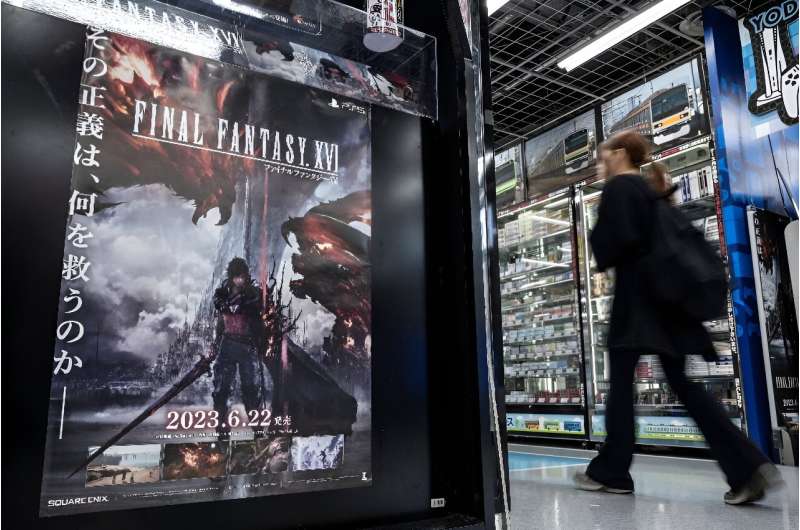
Behind the global success of Japanese video games lies a delicate task: appealing to overseas players whose expectations on issues such as sexism are increasingly influencing the content of major titles.
With the majority of sales for big games now outside Japan, everything from slang words to characters' costumes must be carefully considered for a global audience.
It is a complex process that has come a long way since the "Wild West" of the 1980s and 90s, one high-profile "localization" team told AFP.
"There were no rules, no 'industry standards', and the quality of localization could vary greatly from one title to the next," said the SEGA of America team who worked on "Like a Dragon: Infinite Wealth"—the latest title in the hit "Yakuza" series, releasing on Friday.
Back then, translators faced constraints including too-small text boxes, and sometimes game developers did the job themselves in less-than-perfect English.
It also meant that many games from the era, especially dialogue-heavy ones, never made it out of Japan.
"Thankfully, the industry—and perhaps more importantly consumers—have changed a lot since those days, and we are now able to be more faithful to the cultural and emotional content of Japanese games than ever," the SEGA team said.
Localization is now integral to the design process, with international gamers in mind from the start.
One key example is "how Japanese game developers dress their heroines" as the #MeToo movement changes mindsets, said Franck Genty, senior localization manager at Japanese game giant Bandai Namco.
"We tell them that the cleavage is a bit too exposed, or the skirt is a bit too short," he told AFP.
"Before, they weren't very flexible, but they've become more proactive on such subjects."
'Puck Man'
The puzzle of game localization affected the 1980 arcade sensation "Pac-Man", with the direct translation "Puck Man" deemed too risky because it could be vandalized.
Some top-selling games including Mario, Final Fantasy and Pokemon involve fantasy worlds that are not overtly Japanese, offering some flexibility for their adaptation.
But the task becomes trickier for series such as "Yakuza", which are set in real-life locations and use slang from Japan's underworld.
Getting it right is important: around 70 percent of revenue from recent titles in the "Yakuza" series is from overseas.

But in recent years, booming interest in manga comics, anime cartoons and wider Japanese culture has made the job easier.
"People know what ramen is now... we don't need to say 'noodles' anymore," Genty said.
His team at the European headquarters of Bandai Namco has adapted games including the "Tekken" fighting series and the smash-hit role-playing game "Elden Ring" into a dozen languages.
The job is as much a cultural challenge as a linguistic one, said Pierre Froget, localization project manager at Bandai.
"The player, whichever country they're from, should understand and feel the same thing as someone playing in the original language," he said.
'No longer acceptable'
A better understanding of Japanese culture among players means adaptations can be more subtle—the "Yakuza" series is now called "Like a Dragon", closer to the original Japanese.
© 2024 AFP
Citation: From Japan to the world: how to translate a game (2024, January 25) retrieved 25 January 2024 from https://techxplore.com/news/2024-01-japan-world-game.html
This document is subject to copyright. Apart from any fair dealing for the purpose of private study or research, no part may be reproduced without the written permission. The content is provided for information purposes only.
